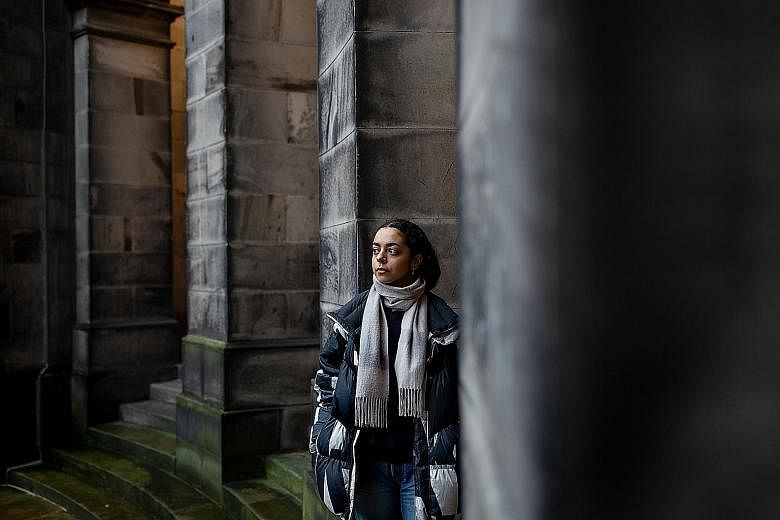PARIS/NEW YORK • Life seemed promising last year to Ms Philae Lachaux, a 22-year-old business student in France who dreamt of striking out on her own in the live music industry. But the onset of the pandemic, leading to the loss of her part-time waitress job, sent her back to live at her family home.
Now, struggling to envision a future after months of restrictions, Ms Lachaux says loneliness and despair seep in at night, when she has suicidal thoughts.
"The pandemic feels like a big stop in our lives," she said. "One that puts us so low that I wonder, 'What's the point?'"
With curfews, closures and lockdowns in European countries set to drag into the spring or even the summer, mental health professionals are growing increasingly alarmed about the deteriorating mental state of young people, who they say have been among the most badly affected by a world with a foreshortened sense of the future.
Last in line for vaccines, and with schools and universities shuttered, young people have borne much of the burden of the sacrifices made largely to protect older people, who are more at risk from severe infections.
But the resilience of youth may be overestimated, according to mental health professionals.
Faced with a restricted social life and added uncertainty at an already precarious moment in their lives, many young people are suffering from a gnawing sense that they are losing precious time in their prime years.
Across the world, they have lost economic opportunities, missed traditional milestones and forfeited relationships at a pivotal time for forming identity.
A study conducted last year by the International Labour Organisation in 112 countries found that two-thirds of 18-to 29-year-olds could be subject to anxiety and depression.
The lasting effects on suicide rates, depression and anxiety are still being measured, but in interviews, a dozen mental health experts in Europe painted a grim picture of a crisis that they say should be treated as seriously as containing the coronavirus.
"We are in the midst of a mental health pandemic and I don't think it's treated with near enough respect," said London psychotherapist Arkadius Kyllendahl, who has seen the number of his younger clients double in recent months.
-
HELPLINES
-
Samaritans Of Singapore: 1800-221-4444
Singapore Association For Mental Health: 1800-283-7019
Institute Of Mental Health's Mobile Crisis Service: 6389-2222
Care Corner Counselling Centre (Mandarin): 1800-353-5800
Silver Ribbon: 6386-1928
Many European countries went into the fall with the illusion that they had curbed virus outbreaks, only to face an even larger wave of infections in the winter.
That led to mistaken expectations, young people said, that harsh restrictions would soon end.
Lockdowns have offered some a respite from the stresses of school or work, which have made them more resilient, psychologists said.
But for others, especially those who already struggled with mental health conditions or limited access to care, their fragility has been exacerbated.
"Not being in control of something like this is anxiety-inducing," said Ms Dalia Al-Dujaili, 21, a student at the University of Edinburgh.
Winter has worsened the situation, according to therapists and psychiatrists, who have seen young people manifesting more severe symptoms of anxiety, depression, eating disorders and addictions.
In the Netherlands, Dr Robert Vermeiren, a professor of child psychiatry at Leiden University Medical Centre, said the acute ward he manages has been full for weeks - something he had never experienced.
In Italy, calls doubled last year to the main suicide hotline for young people. Beds in a child neuropsychiatry unit at the Bambino Gesu Children's Hospital in Rome have been full since October, said Dr Stefano Vicari, director of the unit.
Still, some young people see a silver lining.
"At least the pandemic has given us the right to be sad," said Ms Lachaux, the French student. "We don't have to show all the time how strong we are."
NYTIMES

